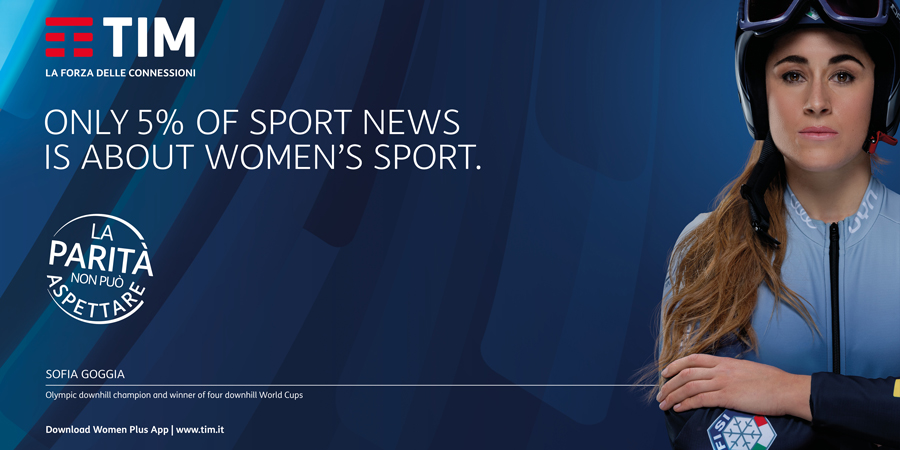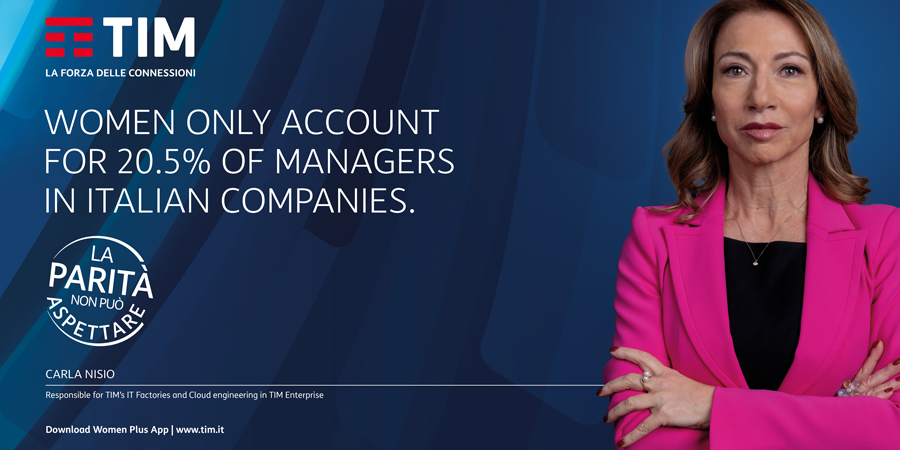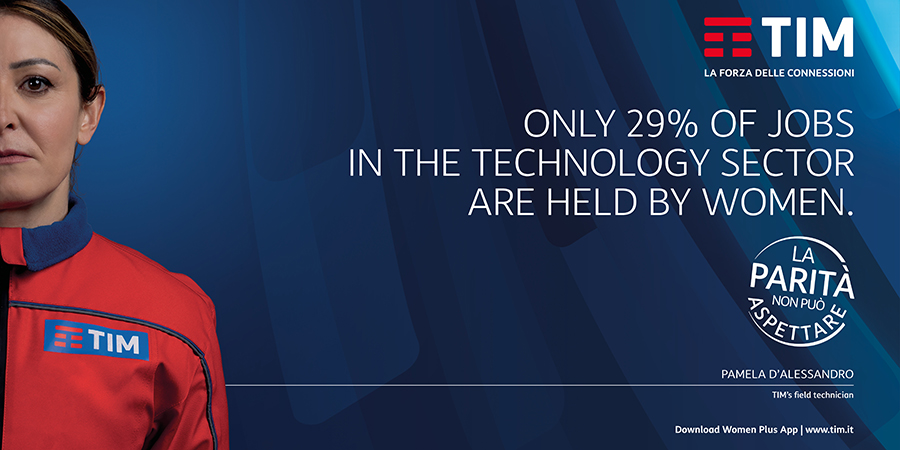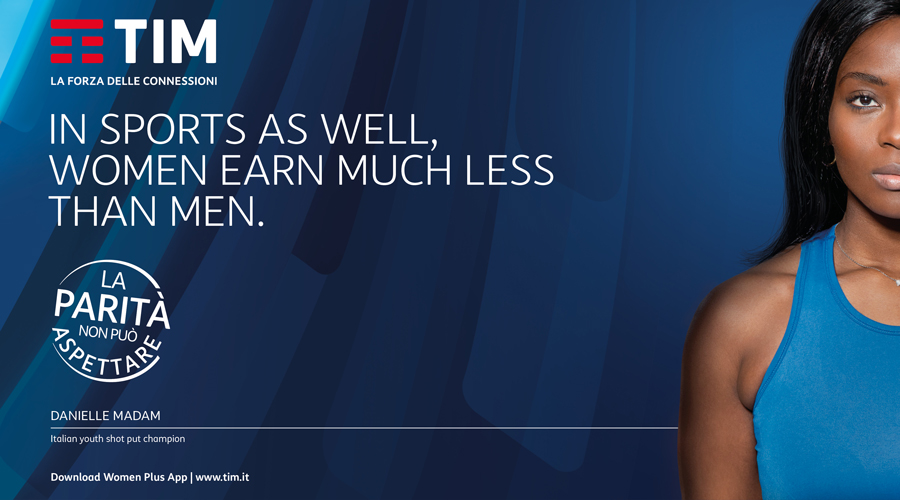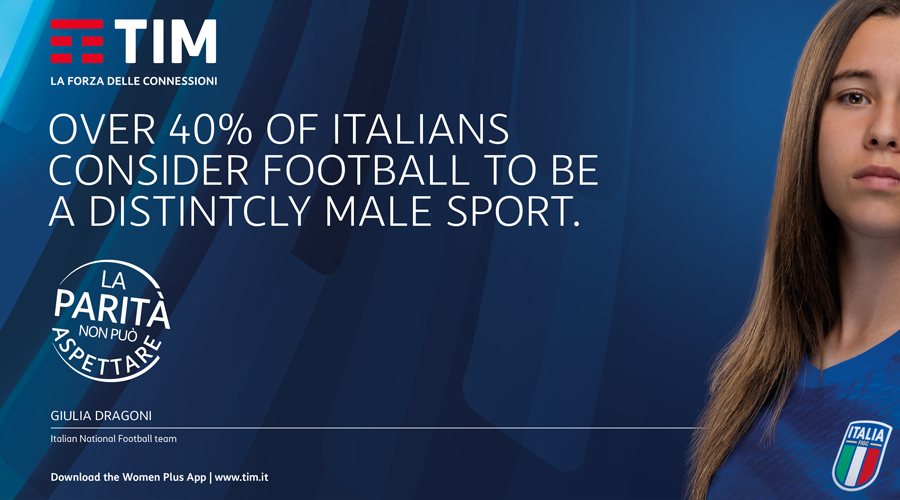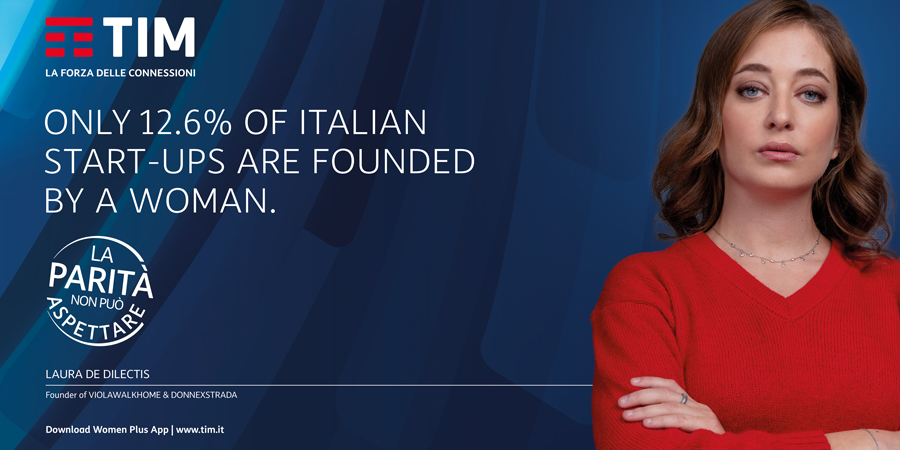Athletes, managers, entrepreneurs, technology workers and young women join us to testify with concrete data how far we still have to go to break down gender bias and stereotypes to ensure greater security and achieve economic and career equity for women.
Sofia Goggia is an Italian alpine skier, Olympic downhill champion in the 2018 Pyeongchang games, and winner of four downhill World Cups and two world medals.
In the world of sport, female participation is growing more and more, and over 40% of participants in all competitions are women. Media coverage of women's sport, however, drops to 5% according to research conducted by the International Association for Communication and Sport, and as low as 4% in periods outside of globally recognised sporting events such as the Olympics, according to UNESCO research.
Not only not very visible, but also very stereotypical: UNESCO shows that the media tends to portray female athletes first as women and only latter as athletes, and very often reference is made to their appearance, age or family life. In contrast, male athletes are immediately portrayed as independent, powerful and dominant.
Carla Nisio, manager of the TIM Group, has a degree in electrical engineering, started as a designer for transmission systems, held positions of responsibility in technical and operational marketing within the Group and is now responsible for TIM's IT Factories and Cloud engineering in TIM Enterprise.
According to data from Manager Italia, the number of managers has risen over the past year due to the increased presence of women, but they continue to be underrepresented at only 20.5% of the total. The percentages are improving for younger managers, but we cannot wait for the long generational change. There are too many women in managerial roles today who are not being recognised.
Pamela D’Alessandro is one of TIM's field technicians who is responsible for ensuring the latest generation of connections for our customers. Her work is characterised by passion and energy, which are indispensable elements for providing a quality experience.
The female workforce in the STEM world stands at 29.2%, with 8 out of 10 leadership roles occupied by men. More women are getting degrees in scientific subjects, but the real difficulty lies in taking the next step, that of moving from studying to entering the workforce, as the data from the World Economic Forum and LinkedIn show. Even in the field of AI, where the search for new talent increased 6-fold between 2016 and 2022, working women represent around 30%, only 4 percentage points higher than in 2016. If, therefore, the gender bias in school choices is slowly tapering off, it is in the workforce that female technology lovers still struggle to make their way.
Danielle Madame is weightlifter and five-time Italian youth shot put champion.
Even in sport there are gender obstacles, even more notable in Italy than in other countries. Something is changing, but much remains to be done, especially in the lower leagues of team sports, those far from the spotlight. While there has recently been a collective agreement in our country that brings women's football into the professional realm, recognising for the first time equal pay and basic rights, such as pension, sick leave and pregnancy protection, the gap between the genders remains.
According to the European Institute of Gender Equality, in sport as well, women are relegated to the margins of decision-making processes in sports institutions locally and nationally as well as at the European and global levels. Of the 28 confederations surveyed, only one has a woman president and there are only eight women vice-presidents out of a total of 91.
Giulia Dragoni is an Italian footballer — now professional — who plays midfield for Barcelona and the Italian national team.
Although the popularity of women's football is growing internationally and in Italy, the combination of “women and football” still sounds strange to many. According to Human Highway, one in three women say they enjoy football, but more than 40% of Italians consider this sport to be masculine. And if the younger generation is more inclined to support a girl's choice to play football, they would still dissuade her for fear that she would be taunted and isolated. So, while four out of five people think that professional female footballers can have a future coaching other premier league teams, as managers or as TV pundits, 15% still believe that it is better for them to change sport.
Laura De Dilectis is a clinical psychologist and founder of DONNEXSTRADA, a non-profit association that works for the safety of people on the streets and against gender-based violence, providing a network of legal and psychological support through Punti Viola, businesses trained and educated on street violence and safety, events, photo campaigns, webinars, workshops for schools and companies, and above all through the first service in the world that uses Instagram live to accompany anyone who is afraid on the street 24 hours a day.
Female entrepreneurs still struggle to emerge and establish themselves. Even though the rise in new start-ups goes hand in hand with the growing engagement of women in sectors with a higher knowledge content — such as information, communications, financial, insurance, professional, scientific, technical, education, healthcare and social assistance services — in Italy, women-led companies account for 22.2%, and just over one in 10 (12.6%) are new start-ups with a female founder, according to Venturebeat’s records. It is no better when we look at venture capital investments. Over the past five years, the enterprise value of Italian scale-ups has grown 34.5%, while, at the European level, investments in start-ups led by women in 2022 actually decreased 20% to €4.1 billion.
